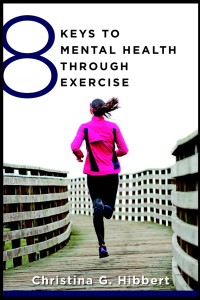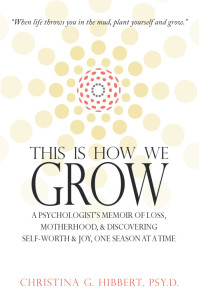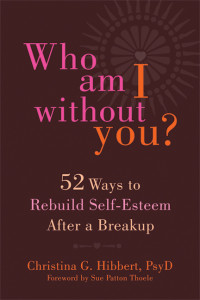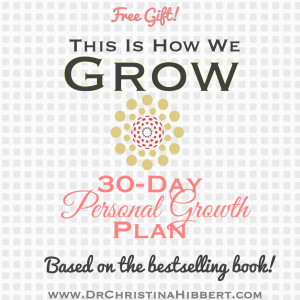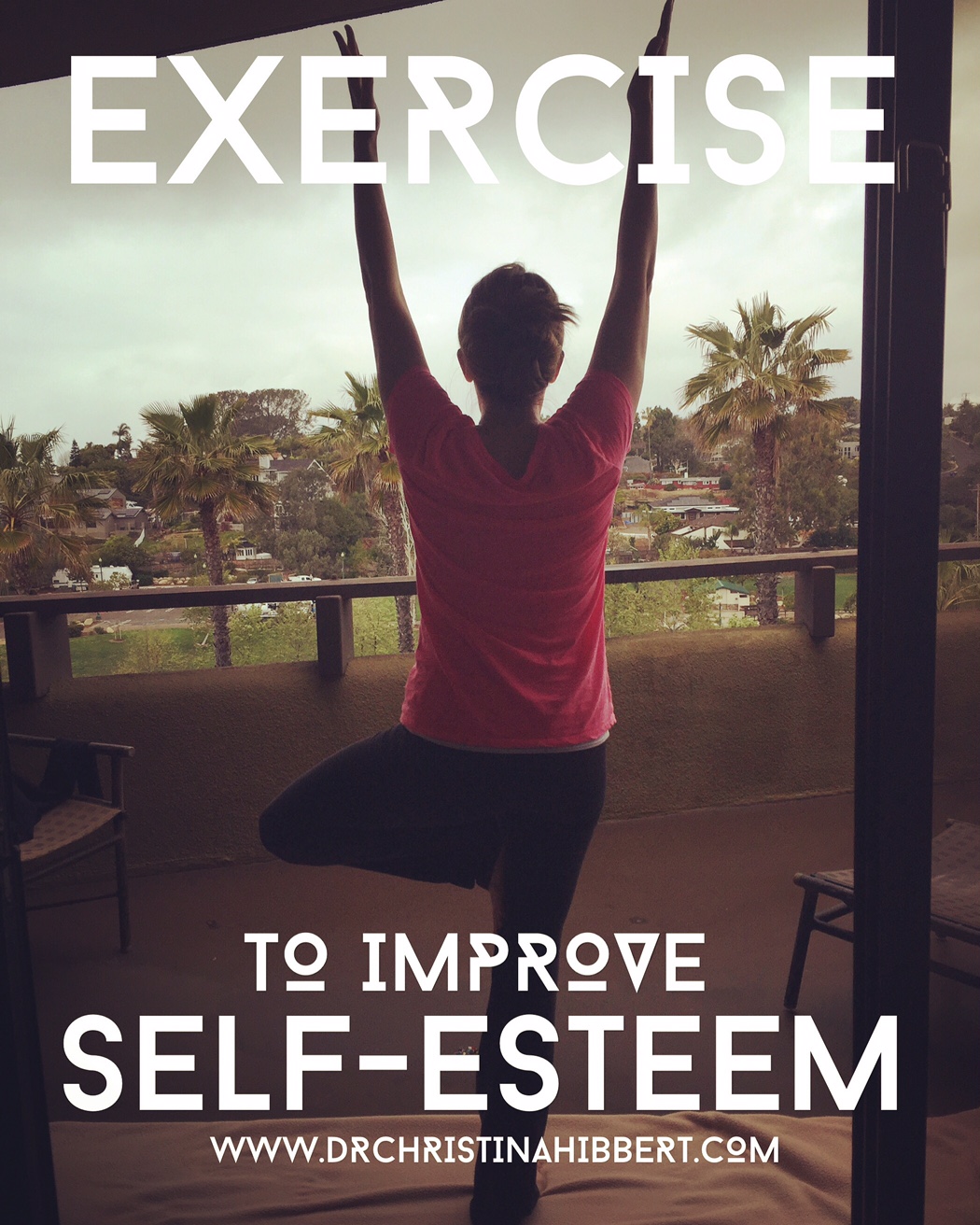
07 Apr Improve Your Self-Esteem with Exercise–Key 2 (Excerpt from “8 Keys to Mental Health Through Exercise!”)
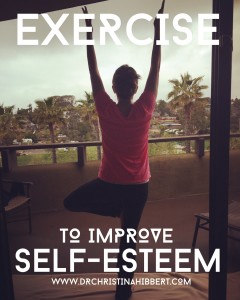
Enjoy this Free Excerpt from my NEW book, “8 Keys to Mental Health Through Exercise!
“To be beautiful means to be yourself. You don’t need to be accepted by others. You need to accept yourself.”
~Thich Nhat Hanh
“Most experts see self-esteem as an important aspect of mental health. I agree: self-esteem seems to underlie almost every issue for which my clients come to therapy. They say they’re there because of depression, or anxiety, or relationship problems, but at its core, the real problem is almost always a struggle with self-esteem.
Self-esteem can be defined as the opinion we have of ourselves, or how we  feel about ourselves. Healthy self-esteem means we have a positive outlook about ourselves, others, and life. The world calls this “high self-esteem,” and it is associated with healthier behavior, including greater independence, leadership, life adaptability, resilience to stress (Fox 2000), more sports involvement and exercise, healthier diet, less smoking, and lower suicide risk (Torres & Fernandez, ).
feel about ourselves. Healthy self-esteem means we have a positive outlook about ourselves, others, and life. The world calls this “high self-esteem,” and it is associated with healthier behavior, including greater independence, leadership, life adaptability, resilience to stress (Fox 2000), more sports involvement and exercise, healthier diet, less smoking, and lower suicide risk (Torres & Fernandez, ).
On the other hand, “low self-esteem” is correlated with the absence of wellness and is a frequent underlying aspect of depression, anxiety, low assertiveness, feelings of hopelessness, suicidal ideation, and a poor sense of personal control (Fox 2000). Low self-esteem is also associated with higher self-criticism, negative thinking, an inability to cope effectively with life, and poorer overall mental health, including a greater chance of developing clinical depression, anxiety, suicidal tendencies, eating disorders, stress, substance abuse, and other mental illnesses (Mann et al., 2004).
In fact, self-esteem is one of the strongest predictors of subjective well-being. It is an essential aspect of mental wellness and quality of life (Diener 1984). Feeling good about who, and how, we are helps us feel good about life’s situations and other people, and helps us face challenges with confidence and compassion. Healthy self-esteem is also correlated with greater physical activity, and greater physical activity is correlated with higher self-esteem (Fox 2000). It’s therefore crucial we develop healthy self-esteem if we want a rich, healthy, and happy life. As we’ll discuss below, exercise can play a valuable role in helping us achieve this.”
…
“Which Comes First—Exercise or Self-esteem?
Researchers have long been asking, “Which comes first—self-esteem or
![[ File # csp2089335, License # 2226530 ] Licensed through http://www.canstockphoto.com in accordance with the End User License Agreement (http://www.canstockphoto.com/legal.php) (c) Can Stock Photo Inc. / val_th](http://www.drchristinahibbert.com/wp-content/uploads/2016/04/canstockphoto2089335-200x300.jpg)
exercise?” We know there is a high correlation between those who are physically active with healthy self-esteem. Common consensus is that this relationship goes both ways. Those who already have high self-esteem are more likely to exercise and participate in sports, especially those who feel confident in their physical abilities and appearance. On the flip side, those with lower self-esteem and physical self-perceptions, including those who suffer from depression, anxiety, and other mental health disorders, are less likely to engage in regular physical activity. However, this group has the most to gain from exercise, and research shows that regular exercise increases positive self-feelings and evaluations, meaning they feel more confident, capable, and healthy through regular exercise and activity, leading to higher overall self-esteem (Fox 2000).
While research can’t exactly pinpoint, it appears there are several mechanisms that lead to improved self-esteem from exercise.
First, as we already know, exercise improves mood and enhances positive self-regard. This, in turn, seems to have a positive effect on self-esteem.
Second, exercise can improve body image, satisfaction, and acceptance for some, which increases overall self-esteem.
Third, exercise leads us to feel more physically competent, which may then improve how we feel about ourselves overall.
Fourth, exercise helps us feel more in control of our appearance, health, and bodily functioning, which can increase a sense of self-efficacy.
And finally, exercise, and especially group exercise, can improve relationships and increase a sense of belonging, which is important in the development of self-esteem (Fox 2000).
Overall, it’s likely that each of these factors interplay to create improvements in mind, body, and self-esteem. Since exercise helps us improve our physical, mental, emotional, social, and spiritual health, it makes sense that this would lead to a greater quality of life and improved sense of self-worth. When we stick with an exercise or fitness routine, we demonstrate motivation and dedication, both of which are associated with greater self-esteem and self-perceptions (Fox 2000). Bottom line: no matter how it works, exercise and self-esteem go hand in hand.
“Exercise, Self-Esteem and Self-Worth
Why, then, if exercise holds so many secret ingredients for our mental health and wellbeing, is it only weakly correlated with how we perceive our ourselves, especially our bodies? I have a theory. I believe this happens because too many of us still don’t feel our self-worth. Even when the outward evidence says, “You’re important! You’re valuable! You’re an amazing human being!” we don’t believe it. We believe our own “evidence” instead, evidence we’ve collected through our whole lives via true or untrue thoughts, beliefs, and perceptions of experiences. This “evidence” says, “I’m not good enough.”
One of the main problems with self-esteem is that it’s mostly based on external

Zion Ponderosa Women’s Adventure Retreat www.ZionPonderosa.com
sources. Research shows that basing our worth on external sources—like appearance, academic or physical performance, or approval from others—leads to greater anger, stress, relationship and academic problems, and higher alcohol and drug use and eating disorders (Crocker 2002).
In contrast, those who base their worth on internal, constant sources, such as being a virtuous person or sticking to moral standards, tend to have greater success in life, including higher grades and lower likelihood of eating disorders and drug/alcohol use. In fact, students in one study who based their self-worth on outward sources, like academic performance, were found to have poorer self-esteem, even when their grades were higher than others (Crocker ). This shows the power of having a true, deep sense of self-worth versus basing our worth on self-perceptions and self-esteem.
Understanding self-worth is crucial in exercise for mental health success; it helps us believe we can do it, stick with it, and reach our fullest mental and physical health potential. When we feel confident, we’re not only more likely to exercise; we’re more likely to let go of the self-perceptions and beliefs that hold us back and make us feel like a “failure.” We’re more likely to overcome the roadblocks, stop unhealthy thoughts and beliefs, and stay motivated and dedicated to exercise. As psychologist Nathaniel Branden writes, “The level of our [sense of self-worth] has profound consequences for every aspect of our existence: how we operate in the workplace, how we deal with people, how high we are likely to rise, how much we are likely to achieve—and in the personal realm, with whom we are likely to fall in love, how we interact with our spouse, children, and friends, what level of personal happiness we attain” (1995, p.4-5). Yes, we need self-worth.”
~Excerpt from 8 Keys to Mental Health Through Exercise, Key 2
Read all of “Key 2: Improve your Self-Esteem with Exercise,” in my NEW book, 8 Keys to Mental Health Through Exercise!
And read more excerpts, like “How to Get (& Stay) Motivated!” and posts like “Mental Health Through Exercise–Key 1: Make it fun!”
Learn more about building self-esteem and self-worth here.
How does exercise impact your sense of self-esteem and self-worth? I’d love to hear from you. Leave a comment, below!
“8 Keys to Mental Health Through Exercise“
“…Enlightening and empowering…” ~Publisher’s Weekly
Pre-Order on Norton.com and SAVE 25% plus free shipping, with the code HIBBERT,
or order on Amazon, Barnes & Noble, Target.com, or Walmart.com!
Be sure to check out my bestselling, award-winning memoir, This is How We Grow!
Available at Amazon or Barnes & Noble!
My latest book, “Who Am I Without You,” is available now at
Target, Amazon, Barnes & Noble, New Harbinger, or your local bookseller!
Join my “This is How We Grow” 30-Day Personal Growth Plan!
Listen to my episode of “Motherhood” radio, “Overcoming Roadblocks (& Excuses) to Exercise for Mental (& Physical) Health” for more tips on self-esteem and exercise! Listen on demand/download the episode at WebTalkRadio.net, and/or visit iTunes to subscribe.
You may manage your subscription options from your profile, here, or above, right.

Let’s Connect!
SUBSCRIBE, above, “Like” me on Facebook Dr. Christina Hibbert; This Is How We Grow, & follow me on Twitter, Pinterest, & Instagram
Related Posts/Articles:
Mom Mental Health Through Exercise: Pregnancy, Postpartum & Beyond!
40 Physical and Mental Health Benefits of Exercise
Essential Oils 101: My favorite Wellness Benefits for Moms, Kids, & Families!
New Year, New You! Top 6 Strategies for Personal Growth & Change
“This is How We Grow” 30-Day Personal Growth Plan–My New Year’s Gift to You!
New Year’s Goal-Setting: 5 Steps for Personal Growth Success
Becoming the Butterfly: The Power of Personal Transformation
Beyond Resolutions: Discover your New Year’s Vision
What I’ve Learned about Personal Growth from a Decade of New Year’s Themes
Get Mentally & Physically FITT: How to create an exercise program that Works!
6 Strategies for Mind-Body Wellness & Empowerment
Personal Growth & Self-Actualization
10 Ways I “Choose to Grow” Each Day
Living a Life of Purpose & Meaning: The Key to True Happiness

